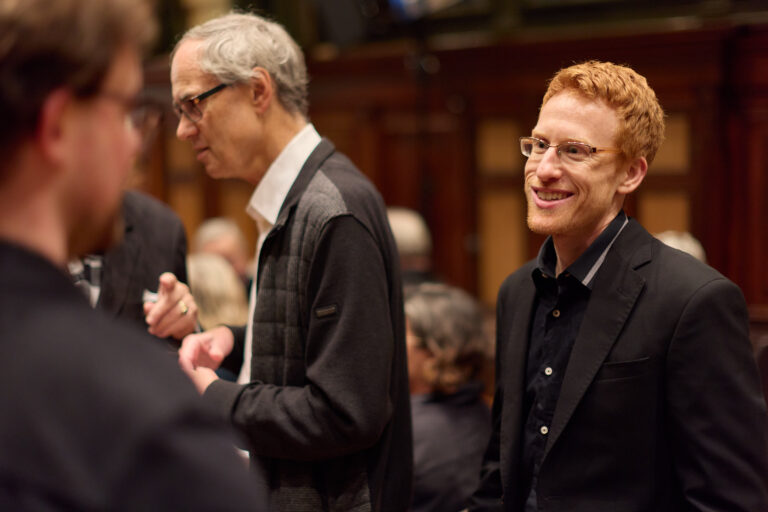Kohli Fellowships
for Sociology
The Kohli Fellowship for Sociology promotes researchers who have successfully finished their dissertation with excellent success. We provide financial support for a two-year postdoctoral stay at the WZB in Berlin or the EUI in Fiesole/Florence. This time should be used to engage in a new research project, to advance publications, and to develop research collaborations.
We are currently accepting applications for the Kohli Fellowship at the Berlin Social Science Center (WZB)




Kohli Fellow at the EUI
As Kohli Fellow at the EUI you will join the Max Weber Program for Postdoctoral Studies at the institute. You are appointed to one of the faculty at the EUI as your advisor, who will help you develop and expand your qualifications while you work on your own research project. Within the scope of your project, you have the opportunity to conduct field work, participate in internal and external training and national and international conferences, and organize your own workshop. Throughout your time as a postdoctoral researcher, you are part of the Max Weber Program which allows you to connect with fellow post-docs and participate in the events offered by the program.
Kohli Fellow at the WZB
As Kohli Fellow at the WZB you will form part of a vibrant intellectual community and participate in the scholarly life of your host research unit. You will have a contact person amongst the staff of the WZB who will support you during the time of your Fellowship. Within the scope of your project, you have the opportunity to conduct field work, participate in internal training seminars and at national and international conferences, and organize your own workshop. Throughout your time as a postdoctoral researcher, we aim to respond to your individual needs and those of your project, and to support you in your career development.
Application
Scholars of all nationalities whose research relates to the respective institute’s research program are eligible to apply for the Kohli Fellowship for Sociology. We particularly welcome research projects with a focus on life course and generational issues – but other topics are equally considered. Applicants must have held their doctoral degree for no longer than five years before the starting date of the fellowship. Applicants must have submitted and defended their doctoral dissertation before the contract begins.
The application should include the following documents:
- A Curriculum Vitae, including a list of publications
- An ‘Academic Career Statement’
- A Research Proposal
- The names of two to three academic referees. Please ensure that your referees have agreed in advance to provide you with a letter of reference, should it be required.
Selection
Successful candidates are chosen in close consultation with the academic host institutions on the basis of scholarly excellence, a research proposal outlining a project to be pursued as Kohli Fellow, and an interview in person or by video. Kohli Fellows are expected to reside either in Berlin or Florence and actively participate in the intellectual life of their institute. The Kohli Foundation for Sociology particularly welcomes applications from women and scholars belonging to academically underrepresented groups. We select one fellow per year.
CURRENT CALL (WZB)
16. November 2025
Deadline for the application for the Kohli Fellowship for Sociology (WZB)
Winter 2025/2026
Interviews, Selection
and Notification
of Fellows
OCTOBER 1, 2026
Start
at WZB
Important dates (EUI)
Fall 2026
Deadline for the application for the Max-Weber Program
winter 2026/2027
Interviews, Selection
and Notification
of Fellows
1 SEPTEMBER 2027
Start
at EUI
Kohli Fellowship 2024 at the WZB
The second Kohli Fellowship for Sociology was awarded to Alexander Hoppe. He received his PhD from the University of Pennsylvania, where he studied with Randall Collins. Before joining the WZB he was a postdoctoral researcher at the Max Planck Institute for the Study of Societies. He studies the microfoundations of capitalism, with particular interest in the fashion industry. His current book project, “Making Mass Fashion”, lays out where fashion comes from and how anticipation shapes the labor process.

Kohli Fellowship 2023 at the EUI
The first Kohli Fellowship for Sociology was awarded to Camille Portier. She completed her PhD in 2023 at Cornell University and previously earned an MSc in Sociology from the University of Oxford. At the EUI, Camille Portier will shift her focus from studying how occupational characteristics shape people’s outcomes and life chances to work contexts and occupational outcomes that structure careers across the life course.





